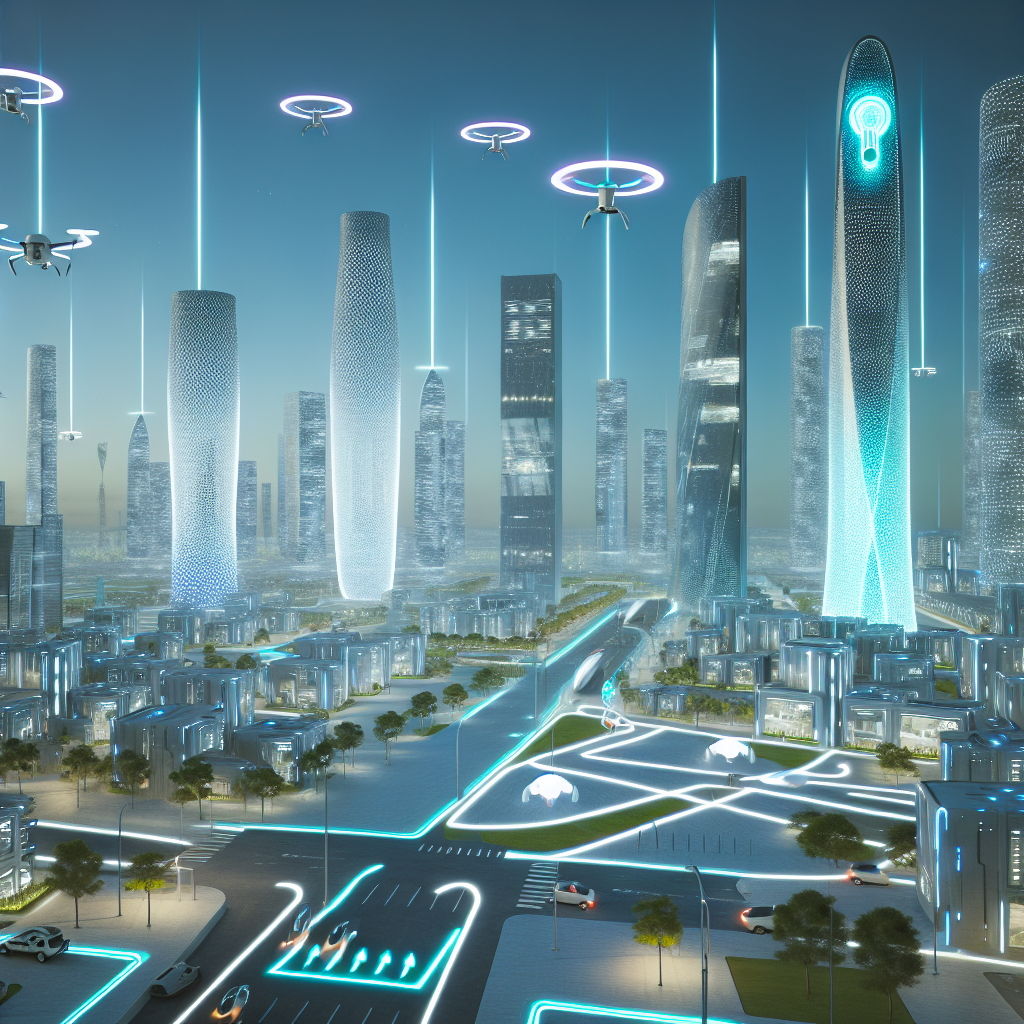Smart cities are using IoT technology to revolutionize urban living by improving efficiency, sustainability, and public services. This includes optimizing resource management, reducing congestion, and promoting sustainable practices. Technology in smart cities is transforming transportation systems, public services, and quality of life for residents, creating a more efficient and sustainable urban environment.
In recent years, technology has been transforming the way we live in urban areas, paving the way for the evolution of smart cities. From the integration of IoT technology to enhance efficiency and connectivity, to sustainability initiatives improving public services, the impact of technology on urban living is undeniable. In this article, we will explore how smart cities are revolutionizing urban living through the use of IoT, enhancing sustainability in public services, and shaping the future of urban living. Join us as we dive into the advancements in smart grids, transportation, and more, highlighting the positive effects technology is having on our urban environments.
- 1. "Smart Cities: Revolutionizing Urban Living Through IoT Technology"
- 2. "Sustainability in Smart Cities: How Technology is Enhancing Public Services"
- 3. "The Future of Urban Living: Exploring the Evolution of Smart Cities"
- 4. "From Smart Grids to Smart Transportation: The Impact of Technology on Urban Living"
1. "Smart Cities: Revolutionizing Urban Living Through IoT Technology"
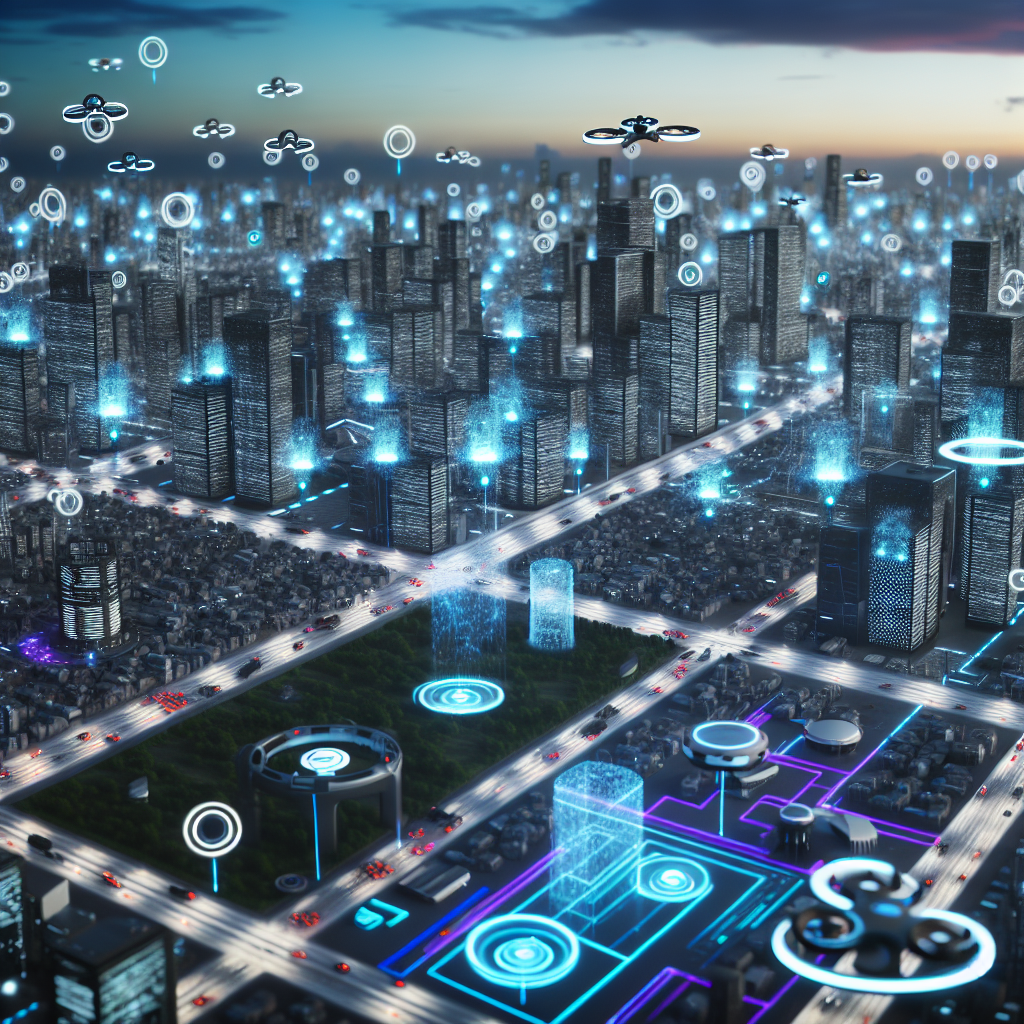
Smart cities are revolutionizing urban living through the use of IoT technology. IoT, or the Internet of Things, refers to the network of interconnected devices that collect and exchange data to improve efficiency and convenience. In the context of smart cities, IoT technology is being used to enhance sustainability and optimize public services.
One key aspect of smart cities is the implementation of IoT sensors and devices to monitor and manage resources such as energy, water, and waste. By collecting real-time data on usage and consumption, city officials can identify areas for improvement and implement more sustainable practices. For example, smart streetlights can adjust their brightness based on the presence of pedestrians, reducing energy waste and lowering costs.
In addition to sustainability initiatives, IoT technology is also improving public services in smart cities. For instance, smart traffic management systems use data from sensors and cameras to optimize traffic flow and reduce congestion. This not only improves the overall quality of life for residents by reducing commute times, but also enhances public safety by minimizing the risk of accidents.
Overall, smart cities are leveraging IoT technology to create more efficient, sustainable, and livable urban environments. By integrating technology into the fabric of city infrastructure, urban living is being transformed in ways that were previously unimaginable. As this trend continues to evolve, the possibilities for improving quality of life in cities around the world are endless.
2. "Sustainability in Smart Cities: How Technology is Enhancing Public Services"
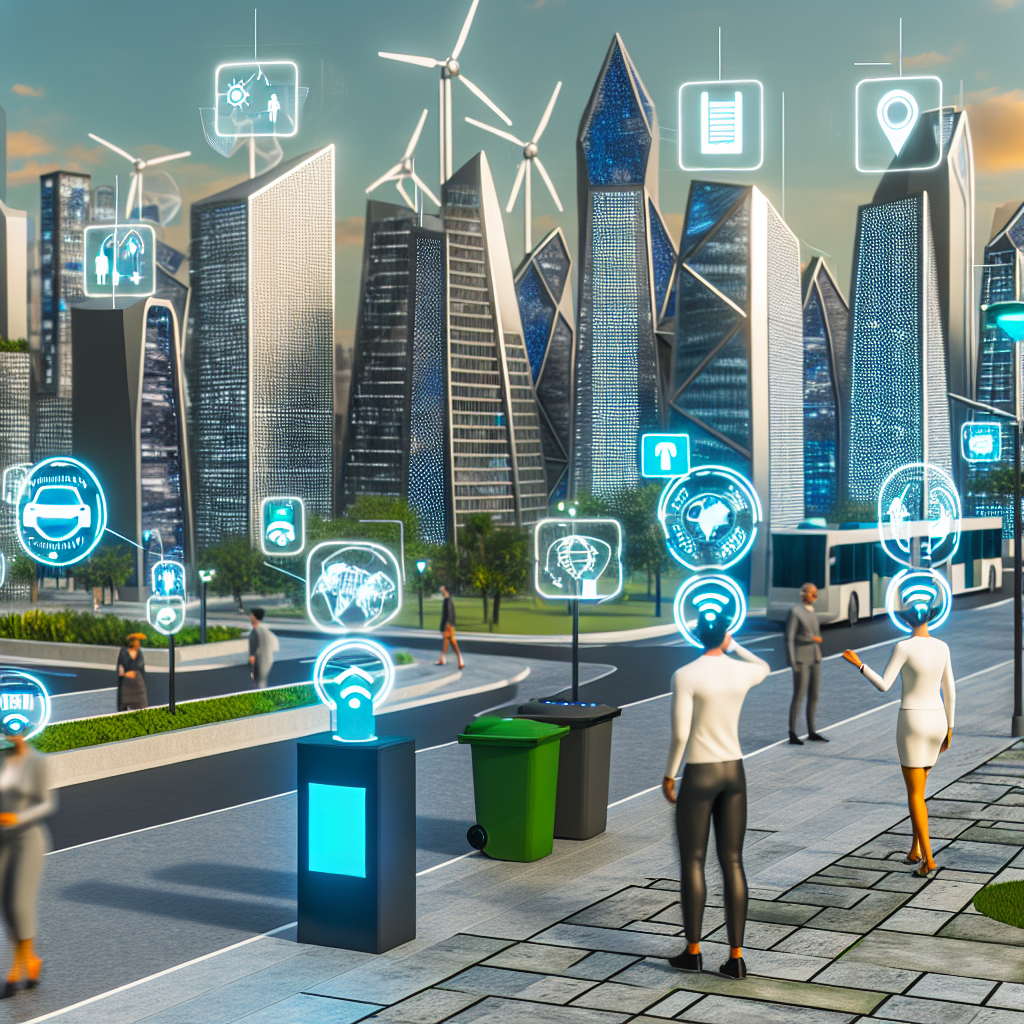
One of the key aspects of smart cities is their focus on sustainability and the efficient use of resources. Technology plays a crucial role in enhancing public services in smart cities, leading to more sustainable and environmentally-friendly urban living.
The Internet of Things (IoT) is a key technology that enables smart cities to optimize public services. By connecting various devices and sensors to a centralized network, cities can collect data in real-time to improve the efficiency of services such as waste management, energy consumption, and transportation. For example, smart waste management systems use sensors to monitor trash levels in bins, optimizing collection routes and reducing unnecessary fuel consumption.
Additionally, technology is helping cities to reduce their environmental footprint by promoting sustainable practices. Smart grids, for instance, can help cities optimize energy distribution and reduce energy waste, leading to lower carbon emissions. Public transportation systems are also being enhanced through technology, with the integration of real-time data and smart ticketing systems to improve efficiency and reduce congestion.
Overall, technology is revolutionizing public services in smart cities, making urban living more sustainable and efficient. By harnessing the power of IoT and other technologies, cities can improve their environmental impact and enhance the quality of life for residents.
3. "The Future of Urban Living: Exploring the Evolution of Smart Cities"
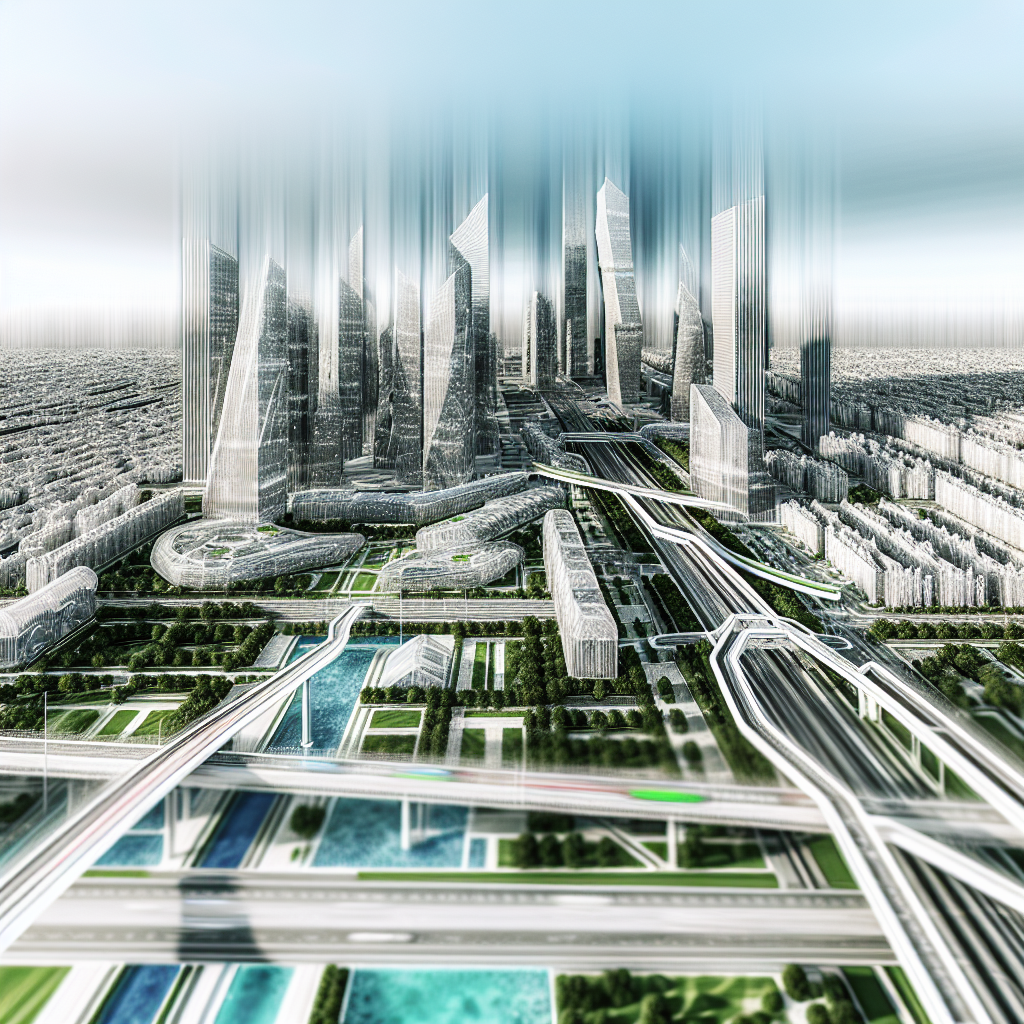
As technology continues to advance at a rapid pace, the future of urban living is looking more and more promising with the evolution of smart cities. These cities are integrating the Internet of Things (IoT) into various aspects of urban life to improve efficiency, sustainability, and overall quality of life for residents.
One of the key benefits of smart cities is improved public services. Through the use of data and technology, cities can better manage resources, optimize transportation systems, and enhance public safety. For example, smart traffic management systems can reduce congestion and improve air quality, while smart waste management systems can streamline collection routes and reduce environmental impact.
Sustainability is also a major focus in the evolution of smart cities. By incorporating renewable energy sources, green building practices, and efficient waste management solutions, cities can reduce their carbon footprint and create a more sustainable urban environment for residents. This not only benefits the environment, but also improves the overall health and well-being of city dwellers.
As smart cities continue to evolve, the potential for innovation and improvement in urban living is endless. From smart grids that optimize energy usage to smart healthcare systems that improve access to medical care, the future of urban living is bright with possibilities. By harnessing the power of technology and data, smart cities are shaping the way we live and interact with our urban environments for the better.
4. "From Smart Grids to Smart Transportation: The Impact of Technology on Urban Living"
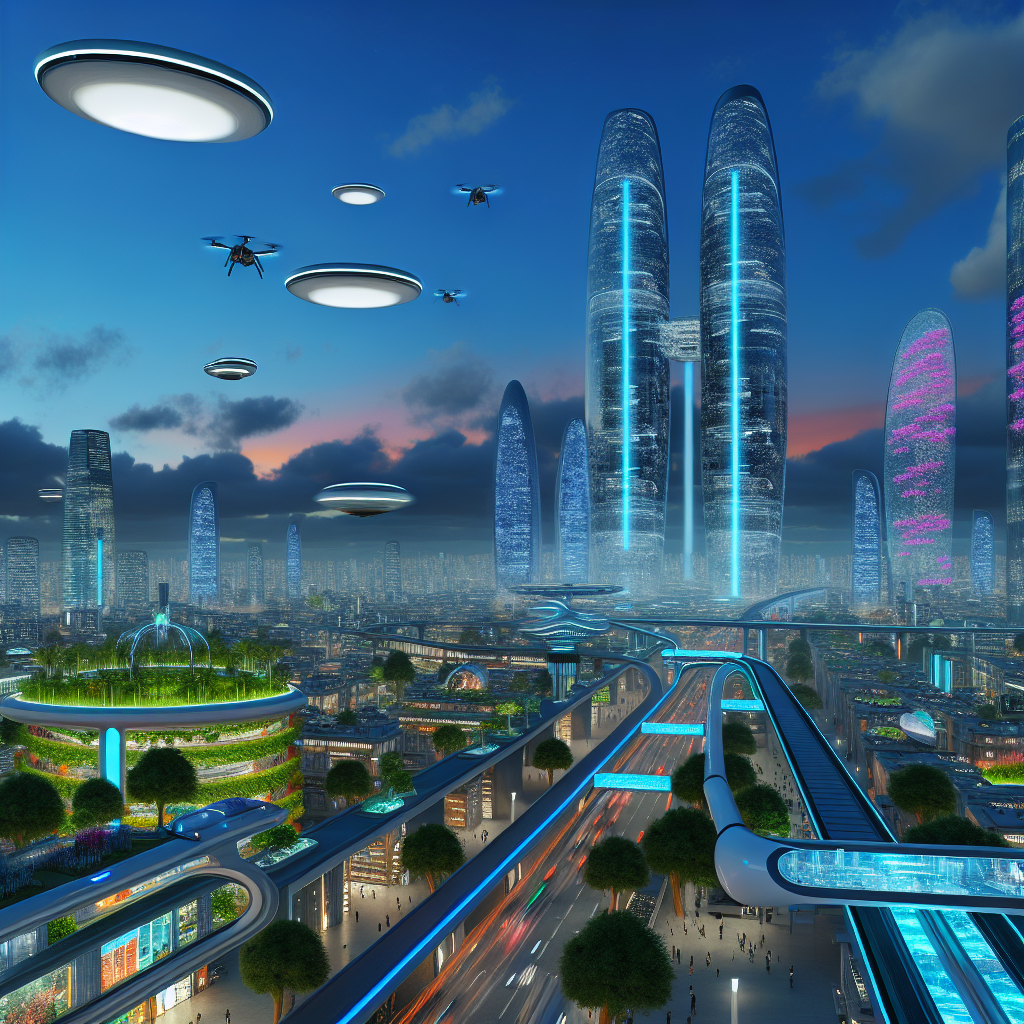
One of the key areas where technology is making a significant impact on urban living is in the realm of transportation. Smart cities are utilizing IoT (Internet of Things) technology to improve the efficiency and sustainability of transportation systems.
Smart transportation systems are incorporating real-time data collection and analysis to optimize traffic flow, reduce congestion, and improve public transportation services. This includes the implementation of smart traffic lights that adjust their timing based on traffic patterns, as well as the use of sensors on buses and trains to provide accurate arrival times to commuters.
Additionally, smart cities are investing in electric and autonomous vehicles to reduce emissions and improve air quality. These advancements in transportation technology not only benefit the environment but also make urban living more convenient and efficient for residents.
Furthermore, the integration of smart transportation systems with smart grids is creating a more sustainable and interconnected urban environment. By coordinating energy usage with transportation patterns, cities can reduce energy consumption and emissions, leading to a more environmentally friendly and cost-effective public transportation system.
Overall, the evolution of smart transportation in smart cities is transforming urban living by increasing accessibility, efficiency, and sustainability in public services. As technology continues to advance, we can expect to see even more innovative solutions that enhance the quality of life for city dwellers.
In conclusion, the evolution of smart cities through the integration of IoT technology is revolutionizing urban living in many ways. From improving sustainability and enhancing public services to transforming transportation and energy systems, smart cities are paving the way for a more efficient and interconnected urban future. As technology continues to advance, the possibilities for smart cities are endless, promising a more sustainable and convenient way of life for residents. With a focus on innovation and collaboration, smart cities are shaping the future of urban living for generations to come.


